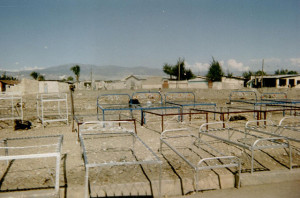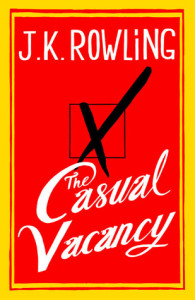Have you ever come to the unpleasant realization that you have participated in your own cover-up?

CC photo “Beds” courtesy of cerebusfangirl on Flickr. Some rights reserved.
That you were your own architect, director of misinformation, and willing dupe? That, in fact, you’ve been avoiding a certain situation by creating some ancillary drama?
I have.
As I sat at my table/desk the other day, trying once again to organize my life, I surveyed the scene in my apartment.
It was a mess. I could only see patches of floor space between the scattered belongings. Everywhere I walked, I stepped on grit. Toppling arrangements of paper and books adorned the surfaces of tables.
My apartment had been a mess for going on two weeks, and was getting worse. The cause: bed frames.
I had two, in a small studio apartment, and I wasn’t sleeping on either of them. I was sleeping on the floor.
I sighed, thinking about all the other parts of my life that weren’t working, either. Then, I suddenly connected the dots.
Bed chaos = life chaos.
The disorder in my apartment was a microcosm of the rest of my life.
Behold: there were two
One of the bed frames, a white metal daybed, was loaned to me by a friend for a few months. Now was the time to return it. Disassembling the daybed was easy: one T25 screwdriver to remove four screws that held the center of the daybed frame to the head- and footboards; eight more screws (two per leg) attaching the head- and footboards to the metal spring frame. Final count: four metal pieces (headboard, footboard, center piece, and frame) and a handful of screws.
I couldn’t fit the frame into my car, as I discovered after I disassembled the bed and lugged all the pieces down two flights of stairs. My friend, who has an SUV, couldn’t pick up her bed for a few more days. I decided against putting the bed back together, and stacked the pieces against the wall in the corner.
The other frame was from IKEA. I got the cheapest wood option. The box containing the pieces was sleek enough: a long, flat rectangle, about 7 feet by 10 inches by 3 inches. There were a considerable number of pieces, however. The headboard alone contained seven pieces of wood, 10 wooden dowels, and four screws.
The IKEA frame was my Frankenstein, only I couldn’t find the spark of life.
I put together the headboard, and the footboard, and was in the process of trying to connect them via the long pieces which support the mattress, before I decided I’d much rather throw the whole lot out the window rather than wrestle with them any further. The long board did NOT want to attach to the headboard, no matter which long screw I used. About one AM, tired of cajoling splintery pieces of pine, I shoved aside my tools and put the mattress on the floor to sleep.
That’s where all the pieces stayed for another week. The headboard and one incompletely connected long piece of the IKEA frame lay on the floor and leaned up against another wall, catty-corner from the daybed, taking up more valuable space. I left the remaining screws, dowels, and metal supports scattered across tables and chairs.
What a disaster, I thought occasionally over the course of the next few days, looking at the stacks, the dust, the sprawled mattress and pieces of bed frame scattered around the room. If only I actually had a bed and all this went away...
Which was when it dawned on me.
I could clean up this mess… and then what?
If the bed frame mess magically went away, I had other aspects of my life to complain about. A list of disasters, in fact.
The bed situation was just a cover.
I’d deconstructed the simple, the straightforward, and borrowed, but I wasn’t able to clear it out of my life. I waited. I hung onto stuff which I would be better served letting go.
Then I’d chosen a cheap and complicated replacement, which turned out to be needlessly difficult to incorporate into my life, and of poor quality. I chose it for myself although I wanted better, because I thought that was all that I could get.
Sound familiar? I’m willing to bet that most of you can relate.
Don’t be fooled.
The bed frames are just a cover. If you take a closer look, I’m willing to bet there’s another mess hiding in the wings that you’d rather not examine. Confession time: when was the last time you created a little drama to distract you from a deeper issue?


